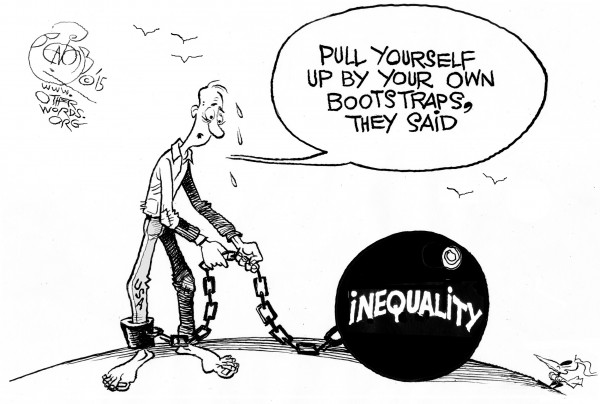The conversation is incredibly familiar. Your white friend said any of the following:
“If you people stopped seeing race everywhere, then it wouldn’t be a problem.”
“Stop being so sensitive.”
“The American Dream is possible for everyone who is willing to work for it; nobody deserves handouts.”
From there, the conversation becomes a series of frustrated attempts to convince them that the experiences are valid. Almost always, your friend maneuvers around their own whiteness while you emerge from the conversation with the same exasperation.
Why do conversations about whiteness always follow this predictable trajectory?
Quite simply, because the central prerogative of whiteness in modern, post Civil Rights America, is to hide its own significance and existence. In the book Racism without Racists, Bonilla-Silva points to how white people use individualism to deflect conversations about themselves as a group.
The American ideal of individualism was largely founded upon a particular whitewashing narrative of history that erased the enslavement and oppression of people of color. Gary Okihiro in Margins and Mainstreams articulates that this version of history “was a narrower construction that distinguished ‘settler’, or original colonist, from ‘immigrant’”. By removing people of color from the equation, white men both historically and in the contemporary moment could claim to stand on their own, when in fact, they stood upon the heads and shoulders of people of color (and white women).
Fundamentally, white people and people of color operate on different definitions of racism. White people’s everyday encounters with overt racism more or less end in 1964 with the Civil Rights Act. Instead, as the “no colored” signs disappeared, they simply moved into the attitudes of the free market. People of color are shown fewer houses, given higher quotes, and receive subprime mortgages. However, white people do not see any of this. Rather, they take the absence of everyday overt racism – verbal harassment, outright segregation, the Ku-Klux Klan – to mean that we have moved beyond racism, rather than that racism is now covertly institutionalized.
On the other hand, people of color understand racism in the context of their whole lives. It is easy for a white person to point at individual incidences of people of color being denied interviews, home loans, and occupational mobility, and say that they are reading too much into things. However, for us, it is an everyday accumulation. Of course, if these things were happening in isolation, we would likely attribute these incidences to other causes. In fact, we try to give people the benefit of the doubt most of the time. However, the buildup of racial trauma accumulates insidiously. The pattern of accumulation then, is institutional, and that is far more harmful and lethal than the rare Ku-Klux Klan member.
The rhetoric of bootstraps conveniently ties itself to the American ideal of individualism in order to appear color-blind and non-racist. Asian-Americans particularly have served as a convenient tool for white people attempting to utilize bootstrapping as a tool to displace the reality of anti-Black racism. In many ways, Asian-Americans have not suffered from the same level of brutal intergenerational oppression that Black Americans have, so the ability of our parents to “pick themselves up by their bootstraps” was certainly more of a reality. However, the primary motivation of white people when they apply bootstrapping rhetoric in conversations about racism is never to actually praise the people in question, but rather to diminish any moral obligation they have to alleviate the white supremacist suffering of people of color. Consequently, we should remember that while individualism as an ideology has its benefits, white people frequently use it to divert conversations about racism away from themselves.





